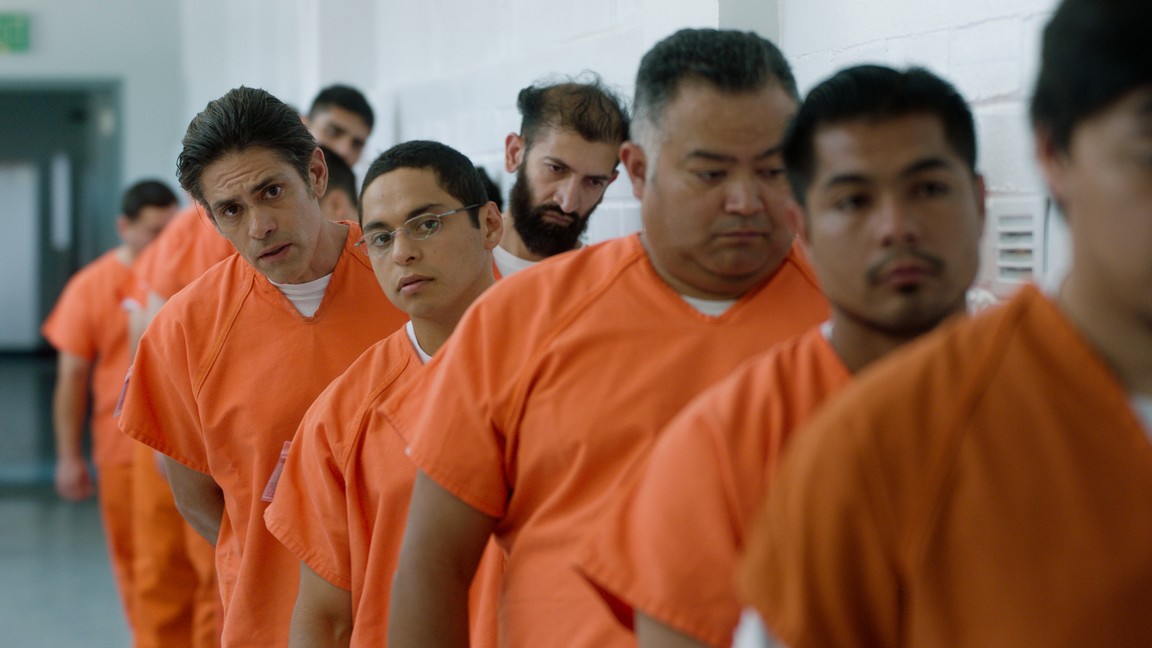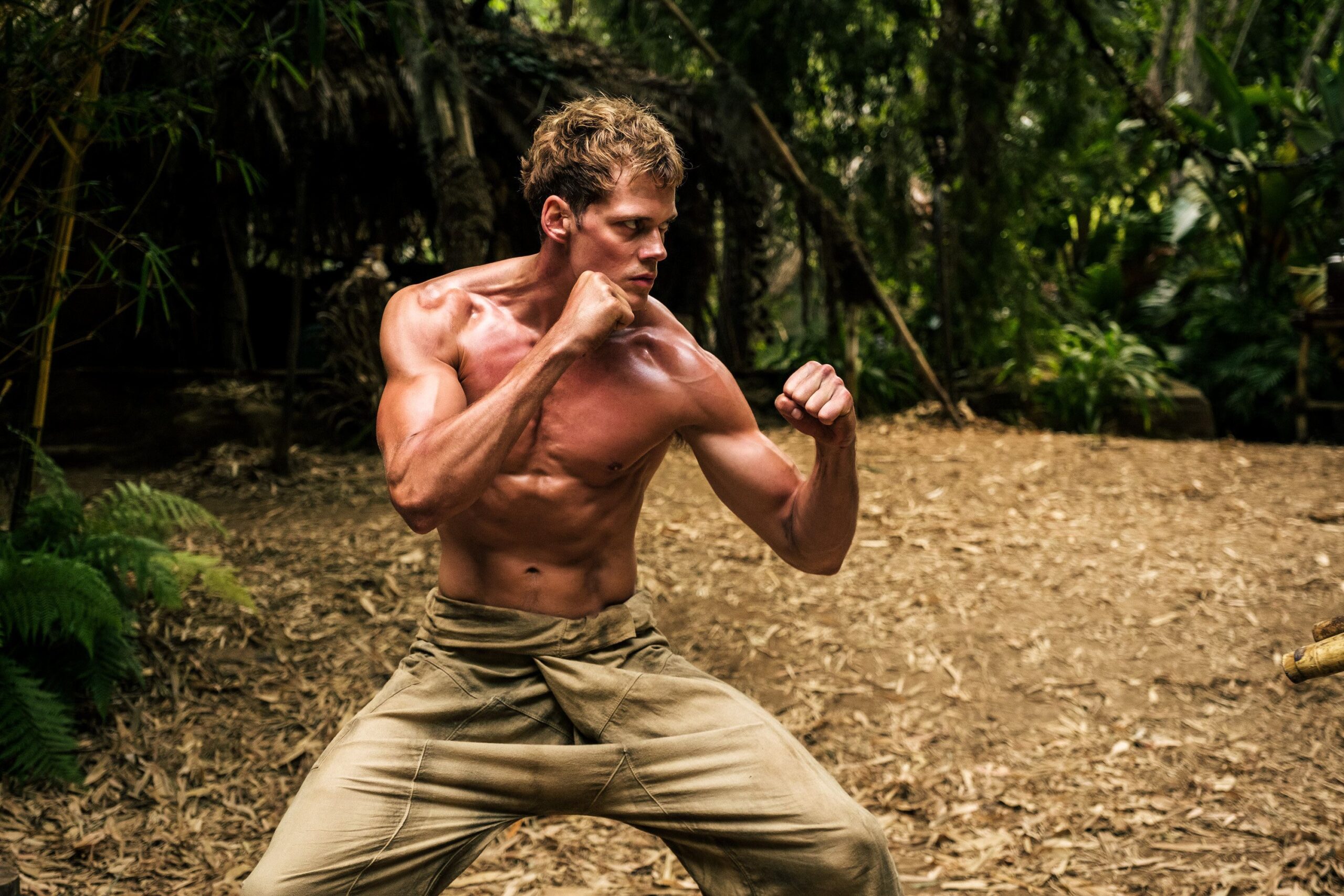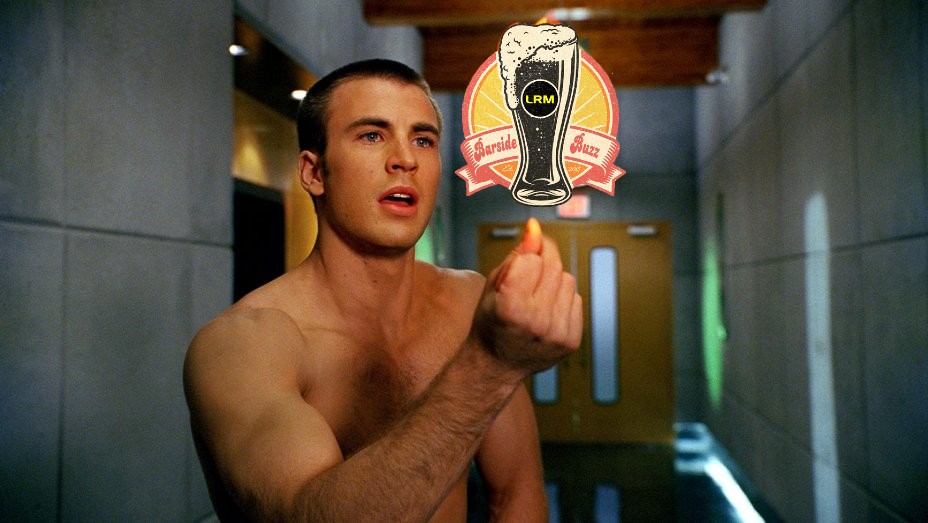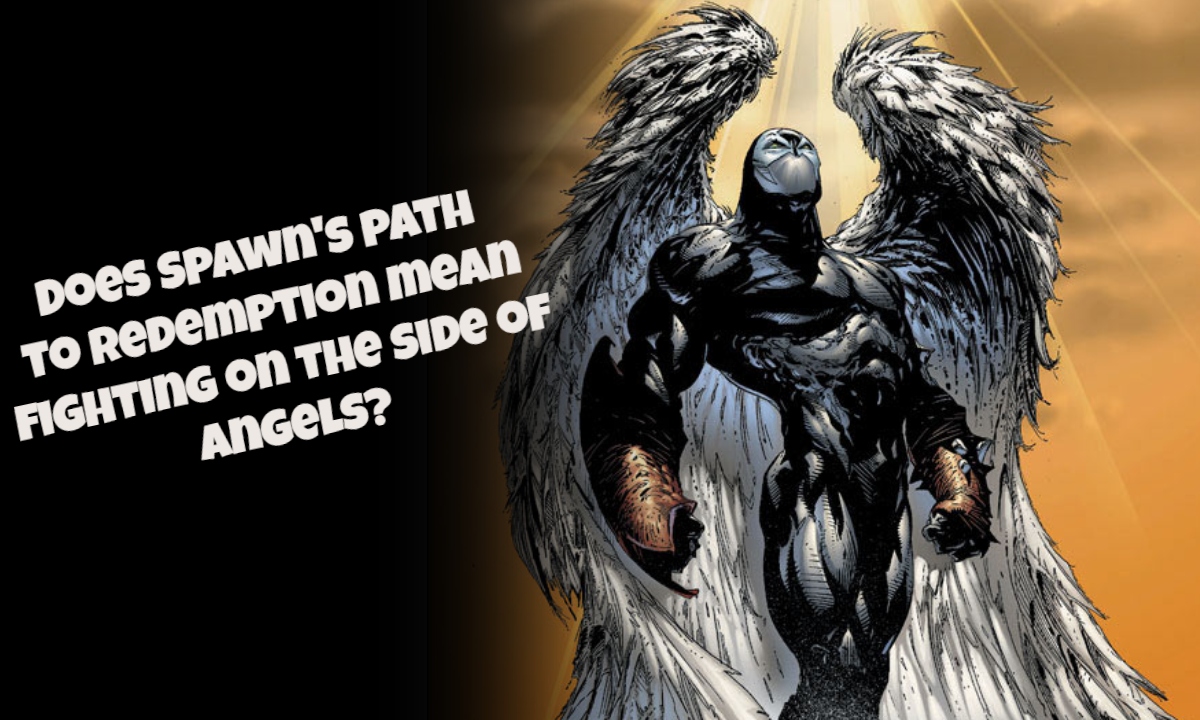Nancy Tapia: So guys, I have to say, it was pretty thrilling watching this docu-thriller. I did cry.
Alex Rivera: Aww.
Nancy Tapia: Definitely, there was that sentimental moment that just makes the viewers feel what these people are going through. How did you handle the feeling of what these people are going through, aside from the content of what this is about as an infiltrator?
Alex Rivera: Thank you for your thoughts about the film. We’re happy it was a powerful experience. For us, it’s been a powerful experience. It’s been many, many years. We’ve gone through a lot of different phases in the process. From when we first learned about the infiltrators and the activists doing extraordinary things. We were almost shocked, and confused, and filled with wonder. That’s what led us to make the film, was to try to understand what was happening.
And then through the process, as we got to learn more about how the immigration enforcement system works, you go through phases of horror and disbelief. Understanding that in this country, that a system that currently locks up over 50,000 people who are never given a trial, who are never given a sentence, are never read Miranda rights or any of those kinds of protections we think people deserve in this country.
We were also obviously inspired by the fighting spirit of the infiltrators. And then the movie is done, and out the door, but the story’s not over. You know, Claudio Rojas, was featured in the film, has since the film was released, been deported by Trump’s ICE. That was incredibly painful for his family and for us. We worked closely with him through this whole process. We’re still fighting to try to bring him back to this country so he can be with his family.
Sorry for the long answer, to your short question. There’s just been a lot of different aspects to this journey.
Nancy Tapia: I’m sorry. Did you say Claudio?
Alex Rivera: That’s right. Claudio. Yes.
Nancy Tapia: Oh, so he was deported?
Alex Rivera: He was, yeah. When we had finished the film, he was not. He was still in this country. But after the Premiere at Sundance, he went to one of those check-ins, like you see him doing at the end of the film. When he went in for the check-in last year, they detained him and deported him.
Nancy Tapia: Oh, my gosh. That’s actually one of my questions I wanted to ask you till the end. That’s heartbreaking to hear after all that battle.
Alex Rivera: It really, really was. We’re just trying to tell ourselves that the battle’s not over. But, yes.
Nancy Tapia: At least with this fight, and his efforts while detained, it facilitated for others to be able to be liberated. So it’s not such a lost cause, if we look at it on a positive note.
Alex Rivera: Yeah. No, that’s definitely true, that the campaign that he was a part of helped free… I mean, he freed himself. He was out of detention for seven years, since the events depicted in the film. He got to spend those years here in the States with his family, and then he freed a bunch of other people.
What happened though is, under Obama, lots of people were being detained and deported. But if you could get on the TV news, if you could make a lot of noise, you could maybe get released. But under Trump right now, this pattern is almost the opposite, where if you’re making noise and if you’re a visible immigrant, they come after you, in particular. This administration has been targeting immigrant activists specifically for deportation. And so Claudio is now part of a group of immigrant activists who’ve been sent out of this country for speaking up.
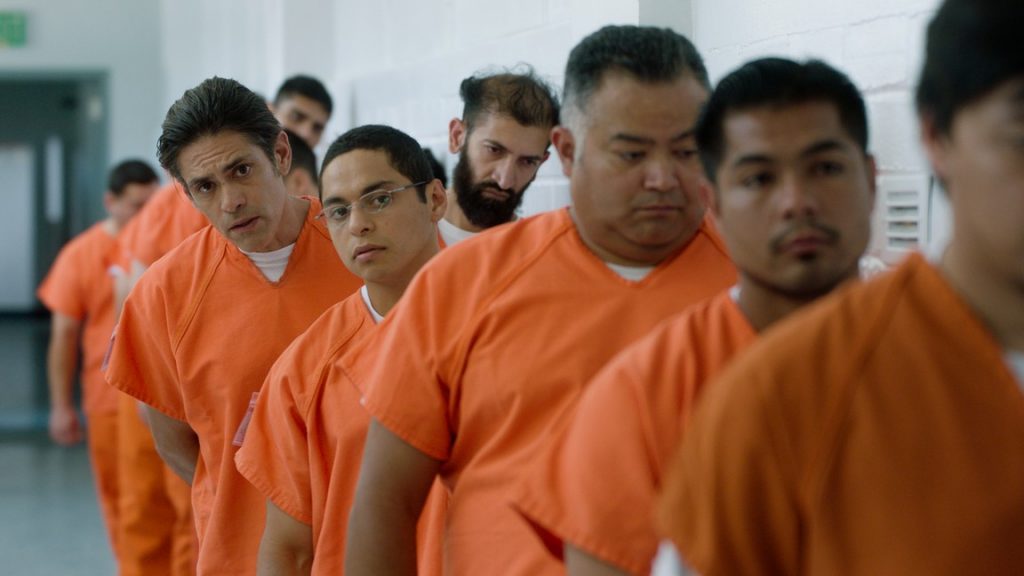
Nancy Tapia: So at this point, people are better off just being silent?
Alex Rivera: You know, I would never say that. I don’t think any of us would. But it’s a question of how to find power right now. How can undocumented people find power, when facing an administration that uses immigration enforcement as a political tool to remove outspoken immigrants from this country. These are techniques that we should recognize from fascist regimes around the world. It’s happening here now, and it’s a challenge. But I would say personally, I don’t think living in the shadow is ever a pathway to hope and power. You know?
Cristina Ibarra: Yeah. When we visited Claudio in Detention, he was still working. He showed us a list of names of people he had been talking to inside who shouldn’t be there. Even this time around, after being out seven years, he’s still out. He’s still public. He’s don’t working as an activist. So I mean, we should really respect and follow his lead. He wants to speak out.
Nancy Tapia: Right. Then for both of you, how did you even find this group of kids? The National Immigrant Youth Alliance.
Alex Rivera: Sure. Christina and I come from immigrant families. As filmmakers, we’ve been dedicated to telling stories of the border and immigration for the past 20 years. When we saw the actions of the National Immigrant Youth Alliance in the news, we were stunned by what they were doing. We wanted to understand, and so we reached out to them.
They had seen our previous film work, so they kind of knew who we were. So there was a bit of trust that got us started. Then we filmed with the group off and on for about two years. We filmed maybe half a dozen different actions that they undertook. But the Broward Detention Center was kind of the one that just stood out to us as a really incredible story.
Nancy Tapia: So many questions. I don’t even know where to start. I saw the trailer, and then after watching the film… Can you tell us about the filming process? You have the parts where it’s acted out, and then you have the parts where it was happening. The process of the kids, how they’re working. They’re volunteers working nonstop and making all these calls, and sending out these letters to government offices. Can you tell us about the experience in witnessing the process of how these kids were helping?
Alex Rivera: There’s a couple of different things. One thing is I’m a U.S. citizen. Christina is a citizen, but we both have undocumented family members. In any case, as citizens, we’ve never really petitioned our government for much of anything. We vote, but we pretty much kind of are along for the ride in this country. I would say is that as a citizen, I was educated about how to engage the government by this group of undocumented activists.
That was incredible to see that they understood how to access the levers of power and make something happen. It makes sense, because their community is the one that’s being attacked by this government. So they had to, out of self-defense, figure out how to become active and how to push the government around in ways that me, as a U.S. citizen, I never had. That was a really exciting learning process.
Cristina Ibarra: Yeah. Then in terms of the making of the film, just figuring out how to… Basically, just really being inspired by them, and the story and choices was also something that was part of the process. We really didn’t know how we were going to shoot the film. We thought about all sorts of techniques, like animation or archival footage. And really it was just by witnessing their work, that we landed on the actor because that’s what they do themselves. These performances and their strategy, and we just took off with it. But it was all a process of discovery. Just like sitting with the footage, being with them and really trying to figure it out, just through conversations and workshops.
Nancy Tapia: As I was watching the film, it seems like it was filmed a while ago. Alex, you said it took two years to film. But it’s coming out now in 2020. What’s the reason for the delay?
Alex Rivera: Good question. We filmed with the group between the year 2010 and 2012, off and on. And then it just took a couple years to even figure out… We had all this footage kind of brawling all over the place. It took awhile for us to come around to decide where the story was and to work together. Christina and I are married.
We never made a film together before, and it just took a while for us to decide to do it. And then once we decided to do it, we went into a really complicated journey. Because we had to edit the documentary material to understand what the story was. To define the parts of it that we could not see., because these Detention Centers don’t let in filmmakers. They don’t let in journalists.
So we had to turn to something creative and it took a while to decide it would be recreation, but we had to edit the documentary first to define what would be recreated. Then we had to write a script, and then raise the money to shoot the recreations, and then shoot them, and then fold it back into the edit. Every step on that process, for normal films, takes years. For normal film, it takes years to write a script, finance it, and get it done. For a documentary, it takes years to shoot the material, edit it, and get it done. We had an efficient film kind of born, like a baby, inside of a documentary film. So it was very, very complicated.
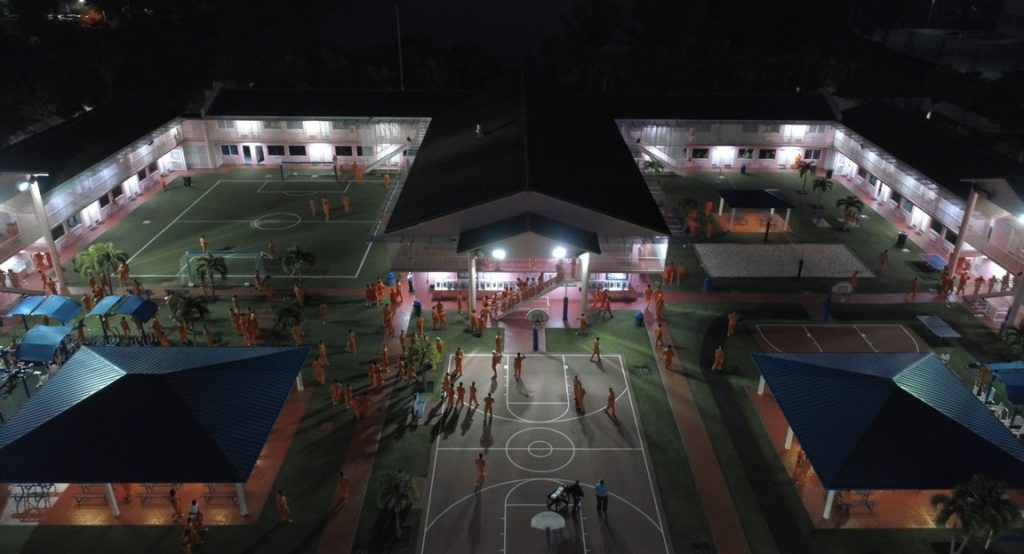
Nancy Tapia: Okay, that makes sense. So how did you come about with the casting? Because you both were directors in this film.
Cristina Ibarra: That’s right. Yeah. We were moving at a particular pace. We had an equity partner involved for the fiction, for descriptive things. Things moved really quite quickly, and we really had only two weeks to cast 24 roles. So it was really just an incredibly difficult process. We worked with an acclaimed casting director, Carla Hool, who was able to very efficiently and quickly find this incredible talent. It was a huge task, because the talent had to match in looks as much as possible. They also had to have the acting skills that were required to move quickly.
It was a grueling process that we were able to find incredible folks. What we did to prepare the actors is we were able to provide them some documentary evidence that showed the people they were depicting in the documentary. And then we connected them to their real counterparts through phones.
And so the casting process, I think, is quite successful. There was this bond that developed between the actor and the real protagonist. Eventually when we were shooting on location, one of our protagonists, Claudio Rojas, who we were speaking about earlier, he was the one who was able to come to staff. He was wonderful with the actors. You know, he did everything from dialect coaching, to explaining the visual layout of the Center, so they can really feel the space. I mean, it was really fantastic.
Nancy Tapia: Where do Mohammad, Marco, Vi and Adam stand today? Since this was filmed in 2010- 2012.
Alex Rivera: At the end of the film, it sort of described everybody kind of going on to their individual lives. Vi is working in North Carolina and has an immigrant rights organization. Marco is New York City working at his family’s restaurant and does immigrant work on the side. Mohammad is traveling around the country doing immigrant rights work. We talked about Claudio. And radical Adam, as far as we know, is still in South Florida doing activism and he works as a librarian by day.
Nancy Tapia: And then you had a couple of stories, but one of them that got my attention. You didn’t get too much in detail, with Neema. Do you know what happened to her?
Alex Rivera: There’s a few characters whose names we had to change, because we could not find the real person, or because they asked us to change their names for reasons of safety. Neema is one of those. But she was ultimately deported. The character who she’s based on, which was ultimately deported. Yeah.
Nancy Tapia: That is so sad. To be detained for trying to turn in the husband that was beating her. That’s really sad.
Alex Rivera: Well, it is. It’s sad and unfortunately, it’s common. That immigrants who turn to the police for help, often watch the police turn against them and turn them into immigration. That’s why in this country, we need to separate police from immigration enforcement. These two organizations should have nothing to do with each other. One is about public safety, and the other is about whether people have their immigration papers in order, but they shouldn’t mix them together.
Starting under George Bush, and then under Obama, and now under Trump, there’s obviously efforts to link the two. And the result of that immigrants have to live in fear of the police, and that doesn’t help anybody.
Nancy Tapia: It’s just such this disbelief in how the system is working at the moment. Very sad and upsetting. From this film you are bringing out to the open what is really going on. What’s your main thing that you hope that viewers take away from watching this film?
Alex Rivera: Number one, we wanted to tell a great story and to make a film that people want to watch, and people can enjoy watching. So we hope it’s a great story, and a good way to spend 90 minutes of life. But in terms of the themes, we wanted to show a couple of things. One is that undocumented folks in this country have a lot to teach the rest of us about how to fight, about how to get the best out of our government, and about their own power in this country. Watching the infiltrators fight for their community is something that we never see, when we talk about immigration in this country.
We never see immigrants as people standing up for themselves. One side wants to depict the immigrants as criminals. The other side is victims. We’re trying to offer a third path here, which is immigrants as leaders and visionaries, and people who can help this country get to its best self.
Cristina Ibarra: Yeah. I think that’s true. But one other way to say it too for me is that I often think about the folks who are trying to figure out the solution to all these immigration reform issues. I feel like many times people who have the most experience, which are the undocumented leadership in this country, they are just left out of the table, out of the room. They’re not part of the conversation.
One of the discoveries that I made, along with Alex and leading infiltrators, is that they’re the best to offer a solution. Yeah. It’s helped it, aside from being entertained that it helps them consider their voice.
Nancy Tapia: And to finalize, I have to ask. I’m curious. How was the process of reaching out to Congressman Ted Deutch to be a part of this documentary?
Alex Rivera: It went straight through the front door. We just emailed his office, and he remembered the situation. The Congressman is from South Florida and the Detention Center is in his district. So he was very familiar with the story. It took a little bit of struggling, but he was immediately willing to go on camera and talk about how the activists had taught him about what was happening inside this facility.
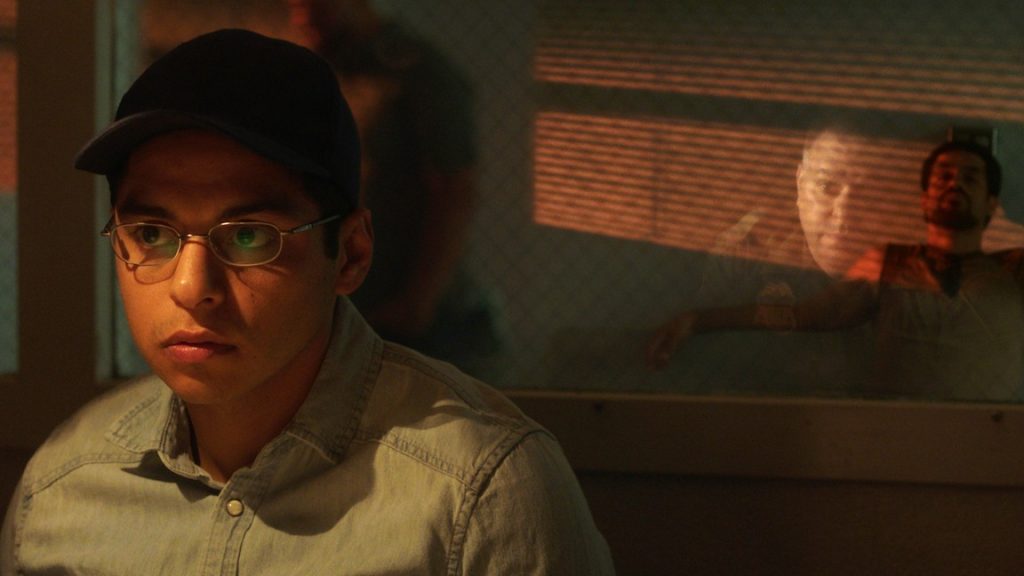
Nancy Tapia: When I saw that, I was like, “Wow, that’s impressive. To see a congressmen in the documentary.” That’s why I had to ask. I wondered if you guys had struggled as not many make themselves available.
Cristina Ibarra: Yeah. No, he was gracious. He ended up having a leadership role, after learning about what was happening at Broward. He spearheaded a letter to investigate Broward, so he’s committed to the issue.
Nancy Tapia: Well, that’s great. So is there anything else that you’d like to share with us that I may have left out to ask?
Alex Rivera: I think this is wonderful and we’re really grateful you took the time to watch the film, and to think about it. I think just for us, is trying to figure out the balance of… We want to talk about it, as a creative work that the film is meant to inspire people who love film, and who want to see a film that does something you really never see, which is mixing documentary and scripted material in this really urgent way to tell a true story.
We hope the film can move some people who just love film. But then separate from that, we hope that it impacts these urgent national conversations. Especially right now heading towards an election and dealing with the aftermath of the virus. We’re going to have to figure out how people move in and out of this country in a way that is decent and humane. We hope The Infiltrators inspires that conversation.
Nancy Tapia: Right. Well, for sure. Thank you so much guys for the time. This film is definitely going to be an eyeopener and giving other viewers a lot of knowledge of what’s going on out there.
The Infiltrators is now virtual Cinema and On Demand.
—–
Have you checked out LRM Online’s official podcast feed yet The LRM Online Podcast Network? This includes our flagship podcast Los Fanboys, our premiere podcast Breaking Geek Radio: The Podcast, GeekScholars Movie News, and our morning show LRMornings. Check it out by listening below. It’s also available on all your favorite podcast apps!
Subscribe on: Apple Podcasts | Spotify | SoundCloud | Stitcher | Google Play
SOURCE:

 FOR FANBOYS, BY FANBOYS
Have you checked out LRM Online’s official podcasts and videos on The Genreverse Podcast Network? Available on YouTube and all your favorite podcast apps, This multimedia empire includes The Daily CoG, Breaking Geek Radio: The Podcast, GeekScholars Movie News, Anime-Versal Review Podcast, and our Star Wars dedicated podcast The Cantina. Check it out by listening on all your favorite podcast apps, or watching on YouTube!
Subscribe on: Apple Podcasts | Spotify | SoundCloud | Stitcher | Google Play
FOR FANBOYS, BY FANBOYS
Have you checked out LRM Online’s official podcasts and videos on The Genreverse Podcast Network? Available on YouTube and all your favorite podcast apps, This multimedia empire includes The Daily CoG, Breaking Geek Radio: The Podcast, GeekScholars Movie News, Anime-Versal Review Podcast, and our Star Wars dedicated podcast The Cantina. Check it out by listening on all your favorite podcast apps, or watching on YouTube!
Subscribe on: Apple Podcasts | Spotify | SoundCloud | Stitcher | Google Play

